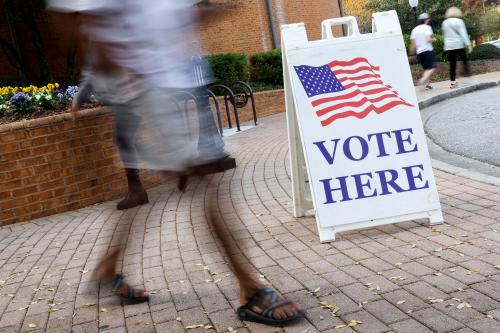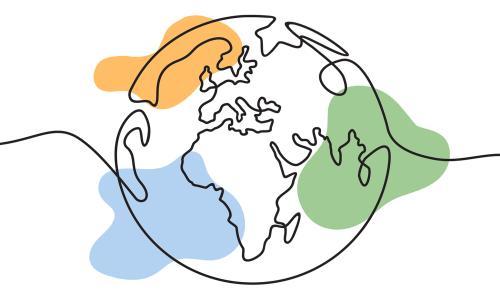I’m a policy professional, so my days are focused on trying to arrive at workable solutions to social and political questions of daunting complexity. And it’s hard to think of a more complex problem than the pervasiveness and persistence of sexual assault and sexual harassment, affecting people all over the world, of all ages, in ways that often seem to be beyond the reach of policy.
Those of us who live part of our lives on social media were overwhelmed this past weekend by the breadth of the #MeToo campaign, in which actress Alyssa Milano encouraged people who’d experienced sexual assault or harassment to post “#MeToo” on their Facebook or Twitter or Instagram accounts. (Me Too was created a decade ago by Tarana Burke as a way for survivors of sexual assault to show mutual support).
The hashtag made nearly a half-million appearances on Twitter and about 600,000 on Facebook by Monday afternoon. I know I wasn’t the only one who was moved by the chilling frequency of the hashtag’s appearance on my feeds, each instance reminding me that, yes, most women I know and many men have experienced sexual harassment or assault, throughout our lives.
The #MeToo campaign has proven profoundly moving to many people, myself included – but by Sunday night, some of my social-media friends were worn down or even irritated, because they were annoyed by the fact that, once again, victims were put in the position of speaking out to raise awareness, rather than others stepping up to confront the problem. My friend Alexandra Samuel challenged “Men of Earth” in a Facebook post on Sunday, “What are you going to do about it? Name one thing. ANYTHING.” She followed up with some suggestions.
Launching an experiment
As as policy professional, my go-to response to this kind of challenge is to think about the research questions it raises, or the options it might imply to improve policies. Another DC wonk, David Rothkopf, took precisely this approach, calling for “an active campaign to boycott companies that tolerate harassment & divest their shares. Get a few big institutional investors to agree,” he suggested, to boost the impact. But although such steps would undoubtedly push companies to institute and enforce more robust policies against sexual harassment at work, policies cannot change culture. The overwhelming drumbeat of #MeToo, from every walk of life, illustrated just how pervasive and entrenched the problems of sexual harassment and assault are in society and in our human relationships. We must somehow understand our own role in perpetuating these problems, and change our culture ourselves.
So that Sunday night, I tried a different kind of engagement with the problem — this tweet:
https://twitter.com/tcwittes/status/919731542783660037?ref_src=twsrc%5Etfw
By Monday morning, I’d gotten some retweets—more than most of my posts on Middle East politics and policy, to be sure. Then LifeHacker’s Leigh Anderson posted a story that highlighted my #IWill tweet, and called on men to “respond to #MeToo with #IWill.” LifeHacker, like many social-media outlets, has a busy army of accounts to echo its new content and so, suddenly, #IWill got traction.
By Tuesday morning, I was floored at the range of responses, and also at how few trolls and snarkers had hopped onto the hashtag to push a reactionary view. I was also profoundly moved by some of the responses to the hashtag:
#IWill try fulfill my ideals with actual deeds. It's rarely easy to stand up to other men harassing / … women, but it's needed.
— Andres Freund (Pol) (@AndresFreundPol) October 16, 2017
https://twitter.com/AdhamSahloul/status/919918190951583744
https://twitter.com/Windwalkers1/status/919745800778924033
No sooner did I see these responses, however, than my social-scientist’s brain started second-guessing their value: Perhaps the vast wave of #MeToo in the preceding days had just temporarily shamed the trolls into silence. Perhaps #IWill was just bouncing around an internet echo chamber, being used and shared by people who were already sympathetic with the need for action and could happily hop onto the hashtag to signal their membership in a virtuous club. Maybe this was just meaningless “slacktivism”: tweeting lots, but signifying nothing.
Evaluating the immediate impact
Yet as a policy pro, I also have some tools for evaluating impact—so I challenged myself to look for any evidence that the #MeToo and #IWill phenomena might have lasting impact, even in the eyes of those who are used to evaluating political action in terms of policy change. Looking through this lens, I can see several ways that a spontaneous outpouring like this one can be of practical use in addressing the disturbingly commonplace, inveterate problems of sexual assault and harassment.
First, #MeToo/#IWill appears to have marshaled additional resources for the fight against sexual assault and harassment. People and organizations active, sometimes for years, in work to help survivors, educate kids, prevent and punish abusers, etc. embraced #IWill as a way to elevate their work and ask for others’ support. There’s no question that #MeToo and #IWill are helping groups like RAINN, who have labored for years on the margins, to get the attention, and some more of the resources, they deserve.
Second, the social media outpouring has started a conversation with and amongst men about how society defines masculinity, and why that’s a problem. In tweets, on Facebook, and in private messages, I heard from men—including queer guys, trans guys, and male survivors of abuse and assault—who have long felt alienated from and/or angry at the locker-room “bro culture” that dominates our societal understanding of masculinity, but they felt less able to call it out until this movement gave them encouragement and a platform to do so. These folks’ very lives and experiences are proof that there is not just one way to be one of the guys. By speaking out, they are making space for men and boys to say no to bro culture when it enables sexualized abuses, and to build ways of being masculine that are different, diverse, and more true to themselves. That’s got to be healthier, for them and for all of us. That’s powerful.
Third, the online conversation appears to be catalyzing reflection that may lead to behavior change. The other set of responses that really moved me has been from men publicly owning that they’ve done and said things they now recognize contributed to a toxic situation for women in their lives, and they are going to check themselves and work to change their behavior. That response shows me that #MeToo really hit home for them and made them introspect, and I salute them for the courage to do that, especially in public.
If these are three different ways #MeToo and #IWill appear to be generating some momentum in positive directions, that still left me wondering whether saying #IWill can really have much impact when compared to the institutional impact of policy change. Was I naïve to think that getting individuals to name a concrete change to which they would commit might make some kind of meaningful difference? How much does this kind of slacktivism matter?
#MeToo was all about exposing people to a hidden reality, and it accomplished that mission simply by the force of numbers. But #IWill is about committing to behavioral change. We know that toxic behaviors persist on campus, in society and in the workplace because of peer pressure, cultural norms, lax enforcement of laws and policies, and the phenomenon of bystanderism. Can responding to a hashtag with a simple public statement of intent to change really push back against such powerful forces?
In fact, research on fields as divergent as weight loss and environmental sustainability shows that public commitment can work to alter individual behavior, both in the short and long terms. It may not be as powerful a factor as placing a bet to support your intended change, but it’s not easily dismissible.
So even as the wave of #IWill hashtags retreats, and the impact of that cascade of #MeToo fades, I’m finding myself more hopeful than I was on Sunday, when I was just sick and tired of this ubiquitous and seemingly insoluble problem. I’m hopeful that, the next time someone at work makes an off-color comment to one of my female colleagues, she won’t be left to deal with it alone—one of the guys will speak up and say, “Hey, that’s not okay.” I’m hopeful that the next time a young woman walking in Dupont Circle gets accosted by someone who thinks he’s entitled to her attention, it won’t just be me who intervenes with a friendly, “Hey, it’s you! Can I talk to you for a second?” and walking alongside her away from the threat. I’m hopeful that more supervisors in more offices are having conversations with their teams this week about mutual respect, emphasizing their openness to difference of all kinds, and making clear that if something happens, they want to hear about it and they are ready to respond.
And I’m hopeful, too, because I’m more confident now that hashtags have a role to play in creating change—and that my policy research, while valuable, isn’t the only way that I can help make a difference.




Commentary
#IWill? What I learned from my week as an online activist
October 19, 2017